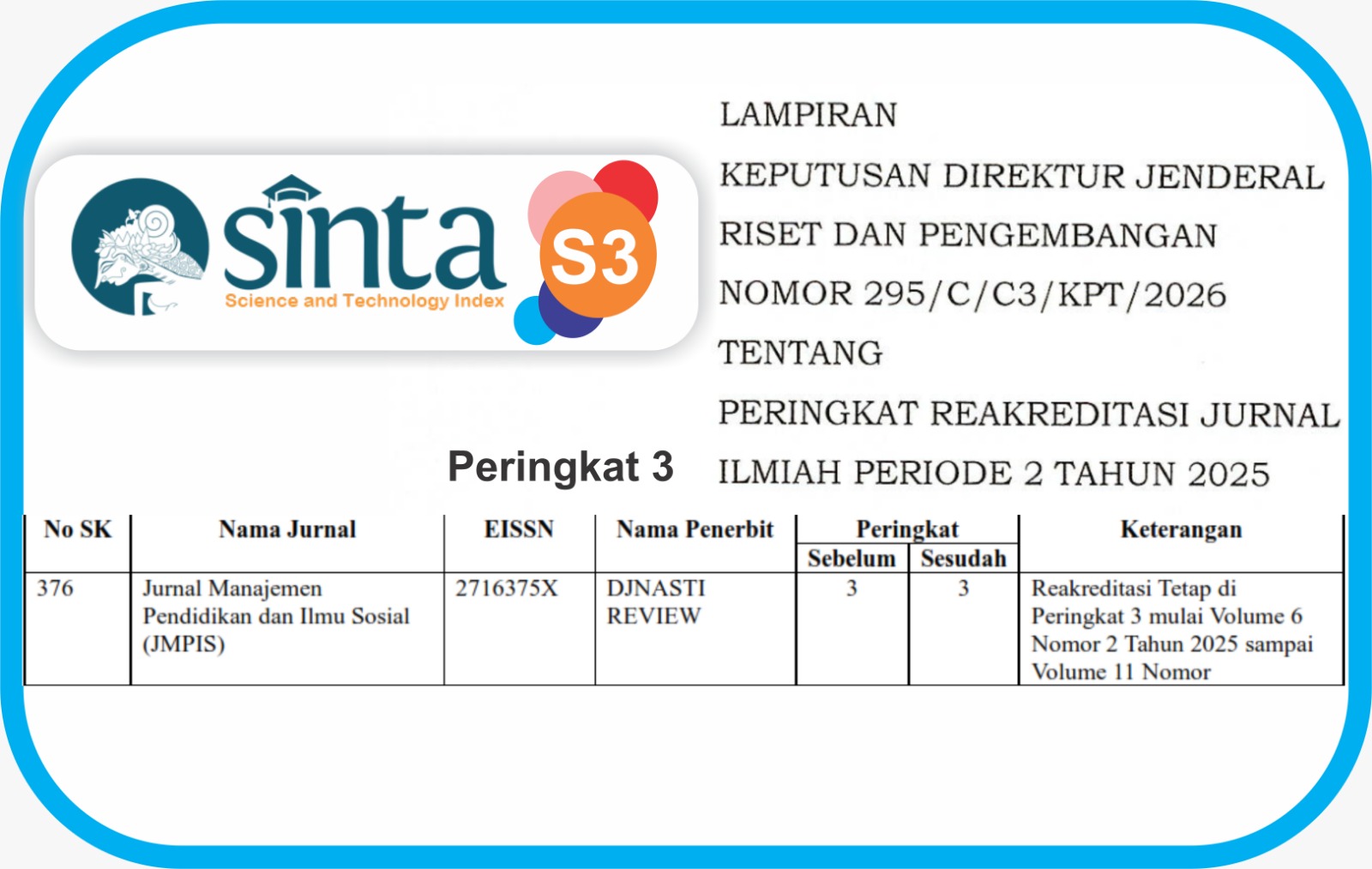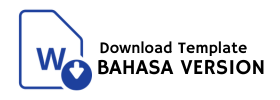Pengaruh Kompetensi Karir terhadap Kemampuan Kerja yang Dirasakan, dengan Dimediasi oleh Kesuksesan Karir dan Dimediator oleh Kejutan Karir pada Mahasiswa Politeknik Penerbangan
DOI:
https://doi.org/10.38035/jmpis.v4i1.1499Keywords:
perceived ability, career competency, career success, career surpriseAbstract
Previous research or relevant research is very important in a research or scientific article. Previous research or relevant research serves to strengthen the theory and phenomena of the relationship or influence between variables. This article reviews the effect of career competence on perceived employability, mediated by career success and mediated by career shock in aviation polytechnic students, a study of human resources literature. The results of this literature review article are: 1) career competence influences perceived work ability; 2) career success mediates the relationship between career competence and perceived ability; and 3) Career shock moderates the relationship between career competence and perceived ability.
References
Akkermans, J., Richardson, J., & Kraimer, M. L. (2020). The Covid-19 crisis as a career shock: Implications for careers and vocational behavior. Journal of Vocational Behavior, 119(May), 1–5. https://doi.org/10.1016/j.jvb.2020.103434
Akkermans, J., & Tims, M. (2017). Crafting your Career: How Career Competencies Relate to Career Success via Job Crafting. Applied Psychology, 66(1), 168–195. https://doi.org/10.1111/apps.12082
Arthur, M. B., Khapova, S. N., & Wilderom, C. P. M. (2005). Career success in a boundaryless career world. Journal of Organizational Behavior, 26(2), 177–202. https://doi.org/10.1002/job.290
Baruch, Y., Wordsworth, R., Mills, C., & Wright, S. (2016). Career and work attitudes of blue-collar workers, and the impact of a natural disaster chance event on the relationships between intention to quit and actual quit behaviour. European Journal of Work and Organizational Psychology, 25(3), 459–473. https://doi.org/10.1080/1359432X.2015.1113168
Bela, L., Riani, A., & Indriayu, M. (2021). Analysis Gender in Entrepreneurship Education: Role of Entrepreneurial Potential and Mindsets on Intention Students in Universities. https://doi.org/10.4108/eai.22-7-2020.2307871
Belser, C. T., & Prescod, D. J. (2021). Conceptualizing COVID-19-Related Career Concerns Using Bioecological Systems: Implications for Career Practice. The Career Development Quarterly, 69(4), 355–370. https://doi.org/https://doi.org/10.1002/cdq.12279
Blokker, R., Akkermans, J., Tims, M., Jansen, P., & Khapova, S. (2019). Building a sustainable start: The role of career competencies, career success, and career shocks in young professionals’ employability. Journal of Vocational Behavior, 112(October 2018), 172–184. https://doi.org/10.1016/j.jvb.2019.02.013
Bridgstock, R. (2009). The graduate attributes we’ve overlooked: Enhancing graduate employability through career management skills. Higher Education Research and Development, 28(1), 31–44. https://doi.org/10.1080/07294360802444347
Briscoe, J. P., Kaše, R., Dries, N., Dysvik, A., Unite, J. A., Adeleye, I., Andresen, M., Apospori, E., Babalola, O., Bagdadli, S., Çakmak-Otluoglu, K. Ö., Casado, T., Cerdin, J. L., Cha, J. S., Chudzikowski, K., Dello Russo, S., Eggenhofer-Rehart, P., Fei, Z., Gianecchini, M., … Zikic, J. (2021). Here, there, & everywhere: Development and validation of a cross-culturally representative measure of subjective career success. Journal of Vocational Behavior, 130(October 2019). https://doi.org/10.1016/j.jvb.2021.103612
Canet-Vélez, O., Botigué, T., Lavedán Santamaría, A., Masot, O., Cemeli, T., & Roca, J. (2021). The perception of training and professional development according to nursing students as health workers during COVID-19: A qualitative study. Nurse Education in Practice, 53(May), 0–2. https://doi.org/10.1016/j.nepr.2021.103072
De Cuyper, N., Bernhard-Oettel, C., Berntson, E., De Witte, H., & Alarco, B. (2008). Employability and employees’ well-being: Mediation by job insecurity. Applied Psychology, 57(3), 488–509. https://doi.org/10.1111/j.1464-0597.2008.00332.x
De Vos, A., De Hauw, S., & Van der Heijden, B. I. J. M. (2011). Competency development and career success: The mediating role of employability. Journal of Vocational Behavior, 79(2), 438–447. https://doi.org/10.1016/j.jvb.2011.05.010
Eby, L. T., Butts, M., & Lockwood, A. (2003). Predictors of success in the era of the boundaryless career. Journal of Organizational Behavior, 24(6), 689–708. https://doi.org/10.1002/job.214
Forrier, A., Verbruggen, M., & De Cuyper, N. (2015). Integrating different notions of employability in a dynamic chain: The relationship between job transitions, movement capital and perceived employability. Journal of Vocational Behavior, 89, 56–64. https://doi.org/10.1016/j.jvb.2015.04.007
Francis-Smythe, J., Haase, S., Thomas, E., & Steele, C. (2013). Development and Validation of the Career Competencies Indicator (CCI). Journal of Career Assessment, 21(2), 227–248. https://doi.org/10.1177/1069072712466724
Grimland, S., Vigoda-Gadot, E., & Baruch, Y. (2017). The International Journal of Human Resource Management Career attitudes and success of managers: the impact of chance event, protean, and traditional careers. May 2013, 37–41. http://www.tandfonline.com/action/journalInformation?journalCode=rijh20%0Ahttp://dx.doi.org/10.1080/09585192.2011.560884
Heslev, P. A. (2005). Conceptualizing and evaluating career success. Journal of Organizational Behavior, 26(2), 113–136. https://doi.org/10.1002/job.270
Hirschi, A. (2010). The role of chance events in the school-to-work transition: The influence of demographic, personality and career development variables. Journal of Vocational Behavior, 77(1), 39–49. https://doi.org/10.1016/j.jvb.2010.02.002
Hirschi, A. (2012). The career resources model: An integrative framework for career counsellors. British Journal of Guidance and Counselling, 40(4), 369–383. https://doi.org/10.1080/03069885.2012.700506
IATA. (2018). THE IMPORTANCE OF AIR TRANSPORT TO The air transport sector makes a major contribution to UAE ’ s economy Air transport facilitates flows of goods , investment and people. 1–4.
Spurk, D., Hirschi, A., & Dries, N. (2019). Antecedents and Outcomes of Objective Versus Subjective Career Success: Competing Perspectives and Future Directions. Journal of Management, 45(1), 35–69. https://doi.org/10.1177/0149206318786563
Vanhercke, D., De Cuyper, N., Peeters, E., & De Witte, H. (2014). Defining perceived employability: A psychological approach. Personnel Review, 43(4), 592–605. https://doi.org/10.1108/PR-07-2012-0110
Wright, G. G., Herbert, L., Hilaire, B., & Campbell, L. O. (2021). Impact of COVID-19 on Employment: Exploring the Perspectives of Job Loss and Mental Health of Individuals From Minimal-Resource Communities. The Career Development Quarterly, 69(4), 299–312. https://doi.org/https://doi.org/10.1002/cdq.12275
Yiu, C. Y., Ng, K. K. H., Yu, S. C. M., & Yu, C. W. (2022). Sustaining aviation workforce after the pandemic: Evidence from Hong Kong aviation students toward skills, specialised training, and career prospects through a mixed-method approach. Transport Policy, 128, 179–192. https://doi.org/https://doi.org/10.1016/j.tranpol.2022.09.020
Downloads
Published
How to Cite
Issue
Section
License
Hak cipta :
Penulis yang mempublikasikan manuskripnya di jurnal ini menyetujui ketentuan berikut:
- Hak cipta pada setiap artikel adalah milik penulis.
- Penulis mengakui bahwa Jurnal Manajemen Pendidikan dan Ilmu Sosial (JMPIS) berhak menjadi yang pertama menerbitkan dengan lisensi Creative Commons Attribution 4.0 International (Attribution 4.0 International CC BY 4.0) .
- Penulis dapat mengirimkan artikel secara terpisah, mengatur distribusi non-eksklusif manuskrip yang telah diterbitkan dalam jurnal ini ke versi lain (misalnya, dikirim ke repositori institusi penulis, publikasi ke dalam buku, dll.), dengan mengakui bahwa manuskrip telah diterbitkan pertama kali di Jurnal Manajemen Pendidikan dan Ilmu Sosial (JMPIS).











































































